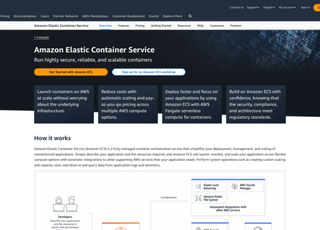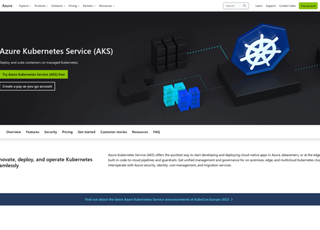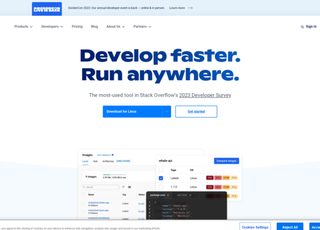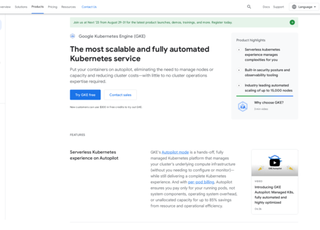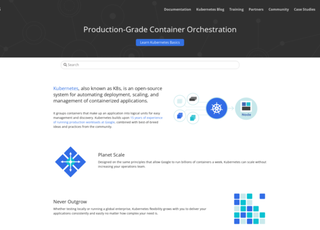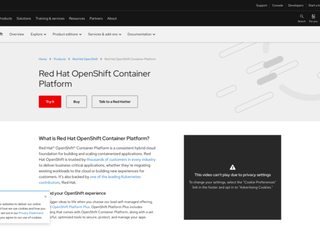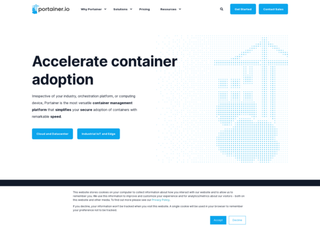AWS Fargate
https://aws.amazon.com/fargate/AWS Fargate
AWS Fargate is a compute engine for Amazon ECS (Elastic Container Service) and EKS (Elastic Kubernetes Service) that allows you to run containers without having to manage servers or clusters.
Detailed Information
Serverless Compute Engine
Fargate is essentially a serverless platform, meaning it abstracts the underlying infrastructure away from you. You don't need to provision, configure, or scale clusters of virtual machines to run containers. This makes deploying applications simpler and more cost-efficient, as you pay only for the resources your containers use.
Integration with ECS and EKS
Fargate integrates seamlessly with ECS and EKS, which are AWS's services for orchestrating container deployment. ECS is more AWS-centric, while EKS is for those who prefer using Kubernetes, an open-source container orchestration platform. With Fargate, you get the benefits of these orchestration systems without the hassle of managing the infrastructure.
Scaling and Load Balancing
AWS Fargate automatically scales the compute resources for your containers. You define the CPU and memory requirements for your containers, and Fargate handles the rest, including the distribution of container workloads. It also works well with AWS's load balancing services, ensuring that incoming traffic is distributed optimally across your containers.
Security
Fargate provides a high level of security by isolating containers. Each container task or Kubernetes pod runs in its own isolated environment, which limits the potential for security issues to impact other tasks or pods. This isolation is in line with best practices for container security.
Resource Optimization
By using Fargate, you can optimize resource utilization. Since you specify the CPU and memory for each container, Fargate ensures that these resources are exclusively allocated for your use. This can lead to more efficient utilization compared to traditional server-based deployments where resources might be underutilized.
Simplifies Operations
Since it eliminates the need to manage the underlying servers or clusters, Fargate can significantly reduce the operational overhead for teams. This means less time spent on infrastructure management and more on developing and improving applications.
Use Cases
Fargate is particularly useful for microservices architectures, batch processing jobs, machine learning applications, and any scenario where application isolation, security, and scalability are important.
Cost-Effective
Fargate's pricing model is based on the actual CPU and memory resources that your containerized applications consume. This approach can be more cost-effective compared to traditional EC2 instances where you pay for the entire instance, regardless of the utilization. It's especially beneficial for applications with variable workloads, as it aligns costs more directly with usage.
Rapid Deployment
With Fargate, deployment times can be significantly reduced. Since you're not managing the underlying infrastructure, the time from development to deployment is shorter. You can quickly launch new applications or services without worrying about the capacity planning and infrastructure provisioning that typically slow down the deployment process.
Easy Integration with AWS Services
Fargate integrates with a wide range of AWS services, enhancing its functionality. This includes integration with Amazon RDS for databases, Amazon S3 for storage, AWS Lambda for serverless computing, and various AWS security and monitoring tools like IAM, CloudWatch, and CloudTrail. This integration makes it easier to build and manage full-fledged, scalable applications on AWS.
Simplified Networking and Security
Networking with Fargate is straightforward. It integrates with Amazon VPC, allowing you to isolate resources, define your own IP addressing, and set up your own network access controls. This makes it easier to build secure and scalable microservices architectures.
Container Health Management
Fargate monitors the health of your containers and automatically restarts them if they fail. This feature ensures high availability and reliability of your applications, reducing downtime and maintaining consistent performance.
Environment Consistency
Fargate helps maintain consistency across your development, testing, and production environments. Since it abstracts the underlying infrastructure, you can have similar configurations across all stages of application development, reducing the chances of environment-specific bugs.
Flexibility and Portability
Since Fargate supports both ECS and EKS, it offers flexibility in terms of container orchestration choices. Moreover, because it uses standard container technology, it supports portability. Applications developed for Fargate can be easily moved to other environments that support containers.
Developer-Friendly
For developers, Fargate offers a straightforward and efficient way to deploy applications. They can focus more on writing code and less on the operational aspects of deployment and scaling. This can lead to faster development cycles and more time spent on innovation.
AWS Fargate is a powerful tool that simplifies the process of deploying, managing, and scaling containerized applications. Its serverless nature, integration with AWS services, and focus on security and scalability make it an attractive option for a wide range of applications and workloads.





















